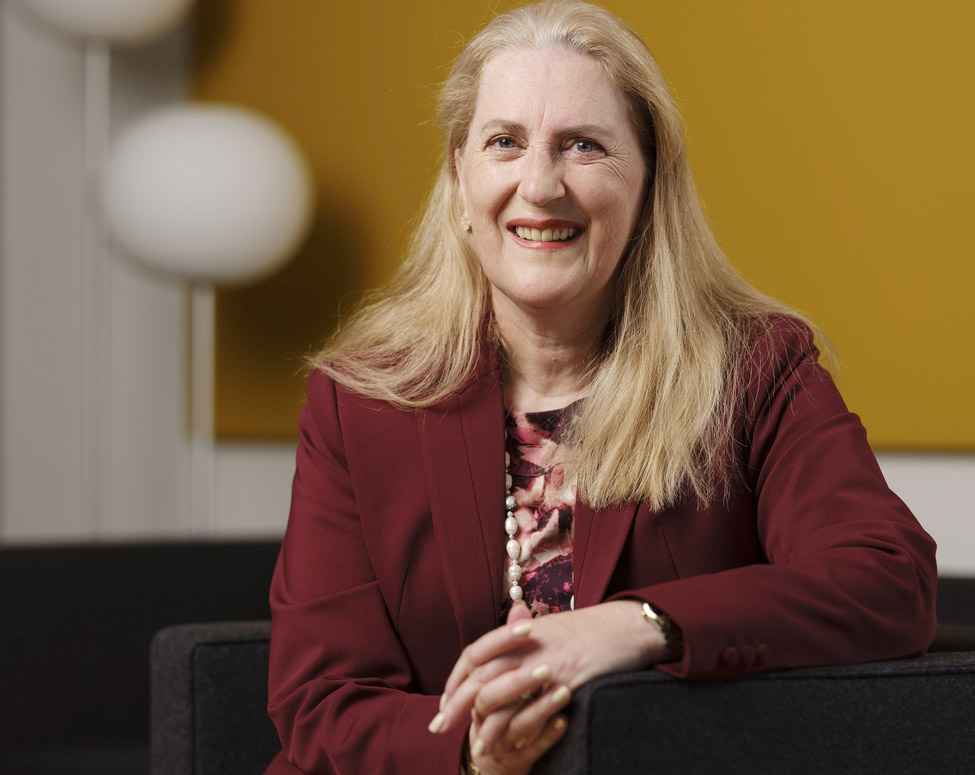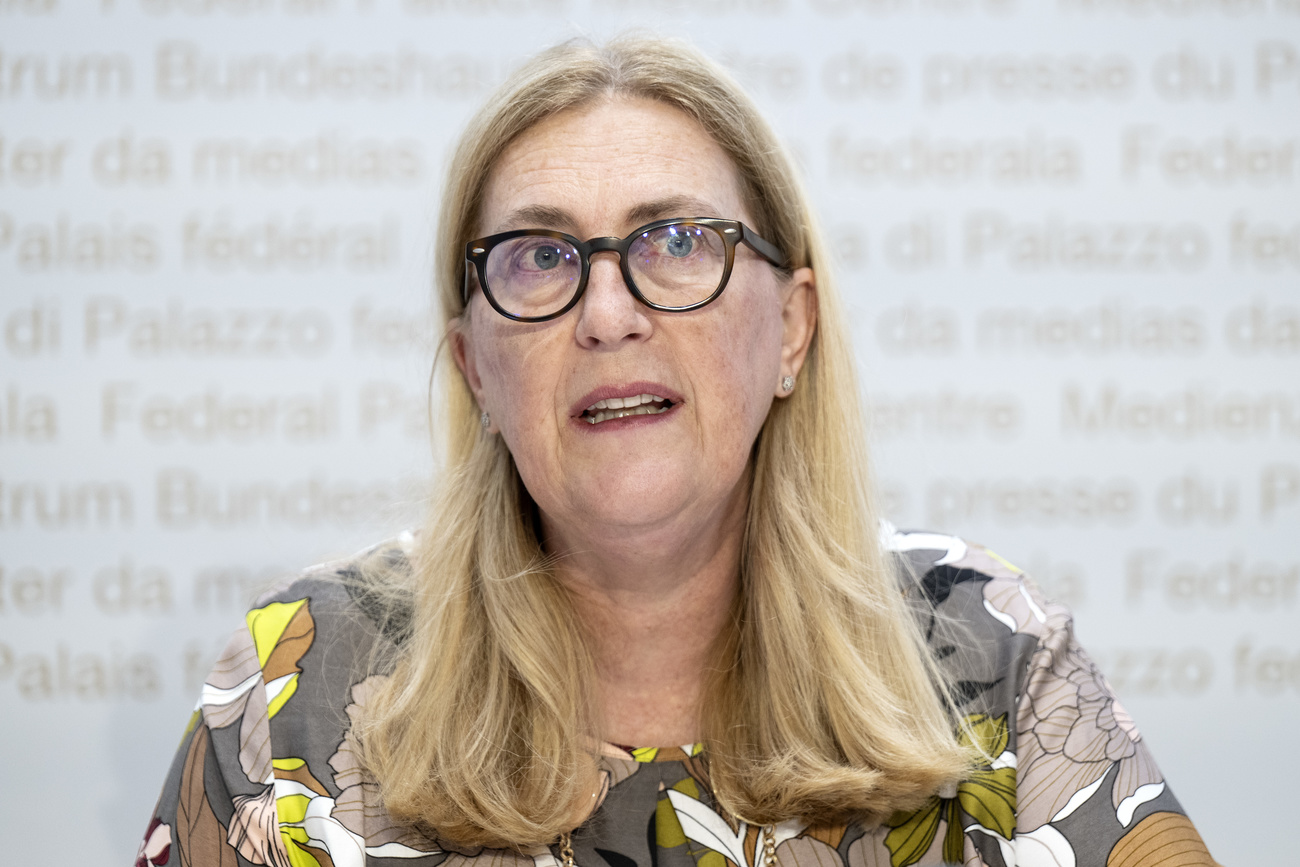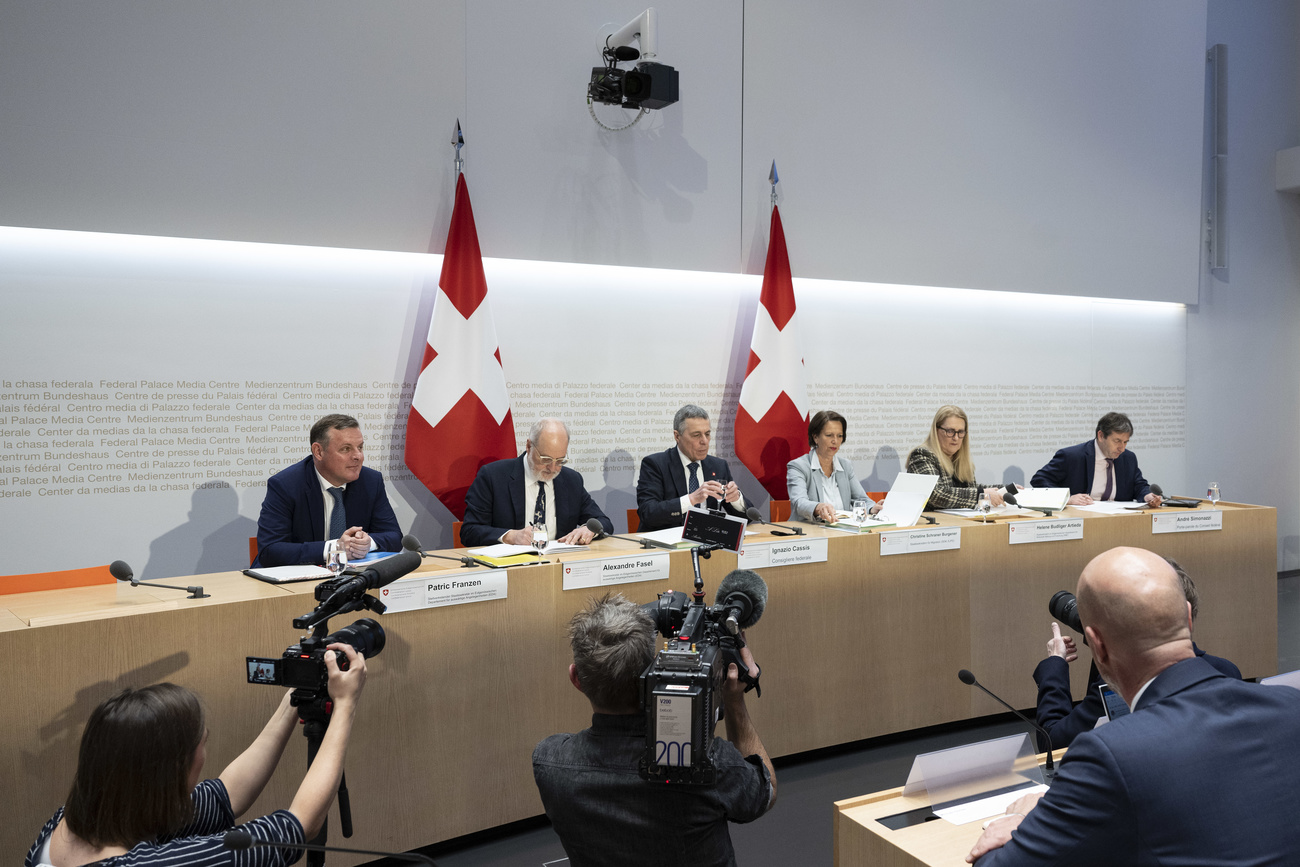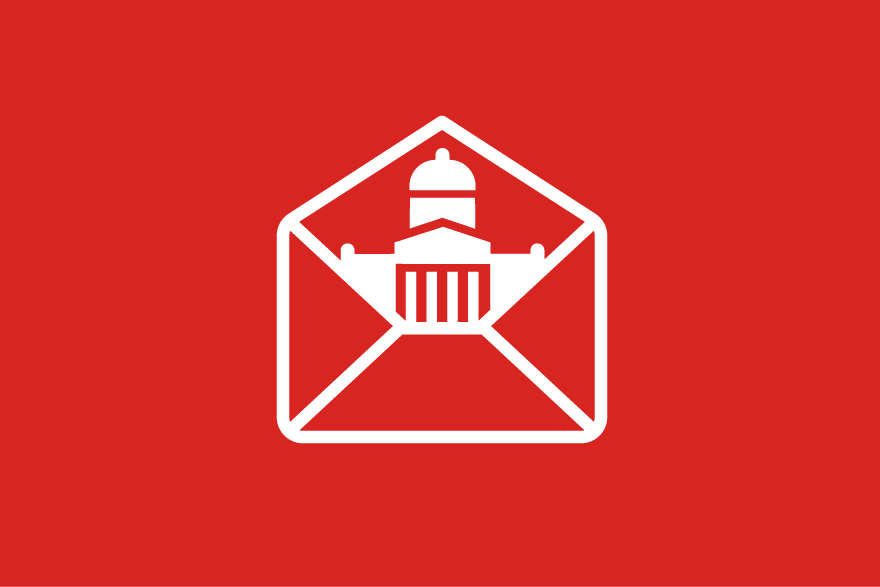‘We’ll take the time we need’ with EU negotiations, says top Swiss trade diplomat

“Time pressure is the number one trap in any negotiation,” warns Helene Budliger Artieda, head of the State Secretariat for Economic Affairs (SECO) and Switzerland’s top trade diplomat, regarding negotiations with the European Union.
SWI swissinfo.ch: Swiss emigrants like Louis Chevrolet and César Ritz once laid the foundations for iconic brands. Do you see such figures today?
Helene Budliger Artieda: Yes, there are outstanding Swiss entrepreneurs all over the world, especially in small businesses. In many countries where I have lived, there has been a very successful Swiss butcher or Swiss baker. In some cases, they became very rich through new, high-quality products.
In Thailand, for example, I met two young entrepreneurs who built toilet facilities. This is not necessarily what you would expect from a Swiss company, but they are very successful.
In South Africa, I met ETH Zurich graduates who have created a market with innovative house construction materials that are geared to the local climate. They are not targeting the luxury sector, nor the social sector, but the lower-middle class. This class falls through the cracks in South Africa, and many cannot afford their own home. Who knows what might become of these names?
Helene Budliger Artieda joined the Swiss foreign ministry as a secretary in 1985. She has been state secretary for economic affairs since 2022, making her Switzerland’s top economic official.
As a diplomat, she was stationed in Nigeria, San Francisco, Peru, Colombia, South Africa and most recently Thailand.
Today she is responsible for Swiss foreign economic policy and dealing with exports and sanctions. In Switzerland, she leads discussions with cantons and social partners concerning the EU, moderating discussions between trade unions and employers who are struggling to find domestic measures for secure wage protection.
SWI: Do you recognise a pattern, something typically Swiss, when you see Swiss companies abroad?
H.B.A.: Yes, they are at the forefront in terms of quality or innovation, often both. Switzerland generally has to compete on the basis of quality and innovation, because we can’t score points on price or mass production.
Another typically Swiss trait is that we insure ourselves on all possible sides. To a certain extent, this also applies to companies. In these volatile times, it is an advantage that our companies act with great foresight and are correspondingly resilient. We saw this during the pandemic and then also in the aftermath of Russia’s war of aggression against Ukraine. Swiss companies consistently demonstrate impressive resilience.

SWI: Because they are economical with reserves?
H.B.A.: Or simply because they have good instincts for risks and opportunities, perhaps also for avoiding risk altogether. What is also striking is that, as a rule, Swiss entrepreneurs are very close to their businesses.
SWI: What do you mean by that?
H.B.A.: I am impressed by their affinity with their employees. Of course, Swiss entrepreneurs also want to earn money. Nevertheless, there is a high degree of understanding that they work in society and for society. They know what duty of care means for a company.
SWI: Switzerland is currently supporting companies entering the Ukrainian market and CHF500 million ($562 million) has been reallocated from development aid for this purpose. Are there enough companies to shoulder this volume?
H.B.A.: Absolutely. There are some Swiss companies that have been operating in Ukraine for years and have held out during the war. One very important example is a window manufacturer that has remained in Ukraine. If you can install their safety glass in hospitals or kindergartens, that’s very meaningful.

More
Swiss parliamentary committee backs Ukraine aid plan
There is also a construction company that can fulfil the great need for protective bunkers in Ukraine. A project is already underway in which we are supporting a company that installs train tracks. Ukraine is a major grain supplier, and transport by rail is becoming increasingly important due to the difficult situation around the ports.
SWI: So the main beneficiaries will be the companies that have held out in Ukraine?
H.B.A.: No, for a second phase, and if Ukraine is interested, we are also considering a general expansion of Swiss deliveries. The legal framework still needs to be established for that. Since it has become known that we are developing an instrument geared towards Swiss businesses, domestic companies are also bringing new ideas to the table. An economic mission is planned for the end of the year, on which we will take these companies with us, and there is a lot of interest in this.
SWI: So, contrary to some critics, you have no problem with development aid money being diverted into Swiss economic development?
H.B.A.: It’s not the aim to create jobs in Switzerland. The important thing is that the CHF500 million has a development component. This project will therefore not hugely differ from our previous economic development cooperation projects. We are used to taking great care to ensure that we create framework conditions that lead to local jobs. The added value should happen locally wherever possible.

More
Swiss State Secretary warns against cutting development aid
We also have to recognise the overarching issue, that a lot of money will be flowing into Ukraine in the near future, an amount the authorities there will hardly have the capacity to absorb meaningfully. I am therefore convinced that the CHF500 million that we will deploy in collaboration with the companies will have a real impact. And to ensure sustainability, a company will remain on site once the restructuring programmes have been completed.
SWI: What makes them so secure?
H.B.A.: The threshold is market entry. Once this has been achieved, most of them stay. But it is also clear that a company will not go to Ukraine on its own initiative at the moment. However, if they have insurance, it’s a different story. What we now offer is a kind of insurance, not in the traditional form, but in the form of a commission.
SWI: Let’s reverse the perspective: how attractive is Switzerland as a business location for foreign companies?
H.B.A.: It is attractive, but I always tell ministers abroad that we can also build production centres in their countries. After all, where in Switzerland would we be able to open another large industrial park, for example? We lack land, we lack people. The Swiss population is feeling the pressure of congestion. Never have we been stuck in traffic jams for as long as we are today.
SWI: So does Switzerland no longer need foreign companies?
H.B.A.: You know that we have full employment in Switzerland. We are only interested in companies that produce high-quality products, are innovative and create good jobs. In short, companies that bring added value to the Swiss economy. If someone else comes along and opens a nail salon, for example, that doesn’t bother me. We’re a free country. But it’s not what will help us strategically. What we don’t want, on the other hand, are letterbox companies [where the general and financial management and the company’s operations are located in a different jurisdiction to that of the company’s legal registration].
SWI: The EU dossier has been unresolved for years, even though it is of great importance to the Swiss economy. You have played a central role in Switzerland since 2022 and are now regarded as the most dedicated figure in this dossier…
H.B.A.: That’s an exaggeration – our chief negotiator Patric Franzen, for example, is doing a fantastic job. He works day and night on this dossier. There are dedicated people across many departments working to ensure that negotiations with the EU lead to a positive outcome.
SWI: But someone has to do the hard graft at home – and that’s you.
H.B.A.: Yes, but I’m not doing that alone either. SECO has a role to play in various processes, which we are happy to take on and are also committed to.

More
Switzerland and EU want to negotiate, but optimism is limited
SWI: Are you getting anywhere? With the trade unions, for example?
H.B.A.: We are talking about the social partners, because the employers are also involved. The process is going well, but it’s very complex. We want to provide the negotiators with the best possible arguments and try to play a positive role in the negotiation process. We are therefore looking at what we need to achieve domestically in terms of compensation measures so that we remain within the landing zones agreed with Brussels.
SWI: Does Switzerland have enough time for these domestic negotiations?
H.B.A.: What do you mean by time?
SWI: The time that the social partners need to find a domestic political solution. There has been no progress domestically for years – and Brussels is exerting external pressure.
H.B.A.: Yes, there is a certain amount of pressure. Although in the case of Horizon, our shrewd negotiations have for the moment led to some initial relief, but we have not yet reached our goal. In the medtech sector, Swiss companies have higher administrative expenses and costs because mutual recognition no longer works despite equivalent legislation. Conversely, EU manufacturers are no longer supplying certain products to Switzerland due to comparable costs. Rapid progress is therefore also in Switzerland’s interest. At the same time, talks with social partners are continuing at pace.
SWI: So the roadmap for a new agreement with the EU is in place?
H.B.A.: The government’s premise is that we will take the time that we need. Time pressure is the number one trap in any negotiation. The deadline must not be more important than the quality of the result. Our interests are at stake, not just wage protection, but also other things such as immigration, which is a sensitive issue for us.
Edited by Reto Gysi. Translated from German by Katherine Price/ts

More
Our newsletter on Swiss politics

In compliance with the JTI standards
More: SWI swissinfo.ch certified by the Journalism Trust Initiative










You can find an overview of ongoing debates with our journalists here . Please join us!
If you want to start a conversation about a topic raised in this article or want to report factual errors, email us at english@swissinfo.ch.